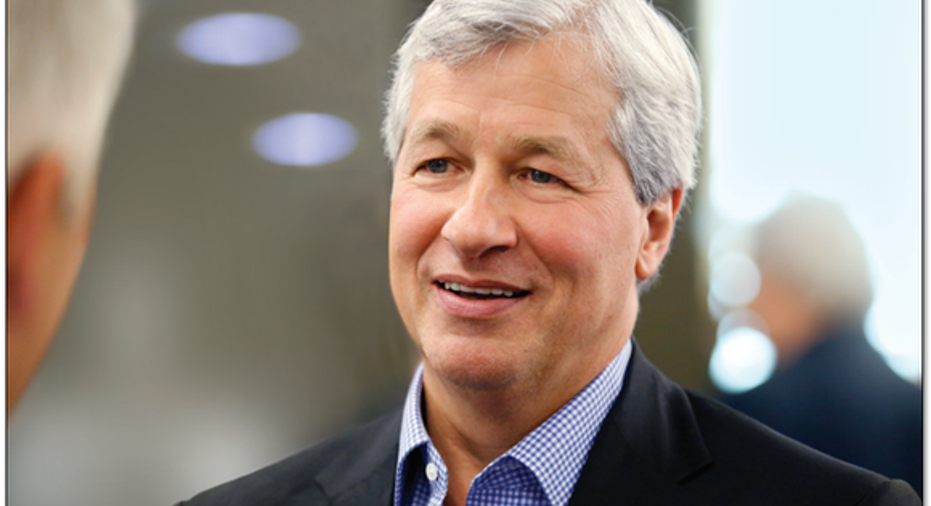Jamie Dimon Needs to Stop Wasting His Time

The head of JPMorgan Chase, Jamie Dimon, said last year that he will soon stop showing up on the bank's quarterly conference call. Image source: JPMorgan Chase.
Jamie Dimon, the CEO of JPMorgan Chase , doesn't seem like the type of person who likes to waste time. But that's exactly what he's doing when he participates in the conference calls hosted each quarter by the nation's biggest bank after reporting earnings.
The good news for JPMorgan's shareholders is that Dimon has come to the same conclusion. Here's how he ended the bank's second-quarter calllast year:
To be clear, transparency is important. JPMorgan Chase is a publicly traded company that's owned by shareholders who rely on the bank's executives (and the SEC) for information that's material to investors. But Dimon's presence on the conference call doesn't further this objective.
Conference calls emit noise, not signal, to put it in behavioral finance terms. They're generally split between a recital of the company's quarterly results, followed by a round of questions from analysts. Yet, the former can be gleaned more easily from the earnings release itself, while the latter merely gives analysts an opportunity to hear themselves talk.
Apart from questions from an analyst like Mike Mayo, who's built a reputation on challenging Wall Street executives, I've almost never heard a question on a conference call that I thought was worth the little bit of energy spent sharing it.
Don't get me wrong. Most of the analysts who follow banks are bright folks. And they know a lot about banking -- certainly more than I do. But these traits aren't reflected in their questions, which seem to be aimed more at an attempt to demonstrate their own brilliance to a potential employer's leadership team (analysts are employed by banks). In this way, the analyst portion of most conference calls is more akin to a dog and pony show for analyst egos than a substantive discussion of material fact.
This is presumably why Warren Buffett, the chairman and CEO of Berkshire Hathaway and an admitted admirer of Dimon, would no more host a conference call with analysts than substitute caviar for a hamburger at Piccolo Pete's, his favorite restaurant in Omaha, Nebraska.
In fact, one commonality of the best CEOs over the past 50 years (measured by shareholder returns) is that they almost all avoided the spotlight as opposed to courted it. "Independent thinking is essential to long-term success, and interactions with outside advisors (Wall Street, the press, etc.) can be distracting and time-consuming," wrote William Thorndike in The Outsiders: Eight Unconventional CEOs and Their Radically Rational Blueprint for Success, a survey of the highest-performing CEOs since 1960.
This is something that Dimon knows well. When he steered JPMorgan Chase away from the most toxic corners of the subprime mortgage market on the eve of the financial crisis, analysts subjected him to a world of hurt. "One of the toughest jobs of the CEO is to look at all the stupid stuff other people are doing and to not do them," said Bob Willumstad, who worked with Dimon years before at Travelers Group -- this quote is from Duff McDonald's book Last Man Standing: The Ascent of Jamie Dimon and JPMorgan Chase.
In short, while Dimon stuck around for JPMorgan's third-quarter call in October, investors shouldn't be surprised if 2016 marks the year that he stops wasting his time. After a decade at the helm, and some of the best returns in the industry, he's got better things to do.
The article Jamie Dimon Needs to Stop Wasting His Time originally appeared on Fool.com.
John Maxfield has no position in any stocks mentioned. The Motley Fool owns shares of and recommends Berkshire Hathaway. Try any of our Foolish newsletter services free for 30 days. We Fools may not all hold the same opinions, but we all believe that considering a diverse range of insights makes us better investors. The Motley Fool has a disclosure policy.
Copyright 1995 - 2016 The Motley Fool, LLC. All rights reserved. The Motley Fool has a disclosure policy.



















